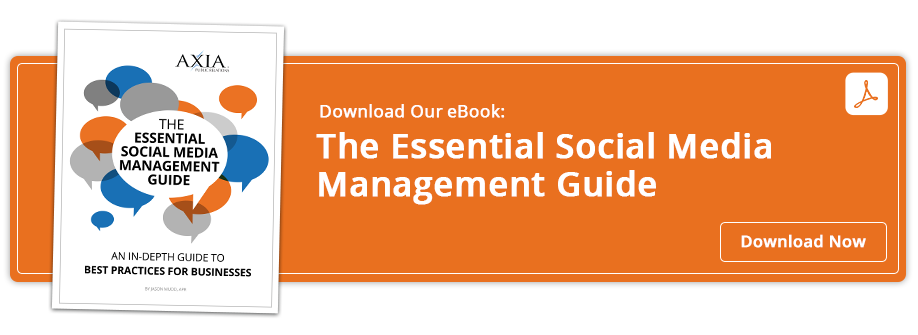Make your social media strategy more efficient by focusing on social media platforms that work for your company
 According to DataReportal, 17 social media platforms have more than 300 million active users each month as of April 2021. This figure does not include many smaller social media platforms that still have large active user counts. With countless ways to connect with audiences at your fingertips, your company’s online public relations can reach the world through multiple platforms.
According to DataReportal, 17 social media platforms have more than 300 million active users each month as of April 2021. This figure does not include many smaller social media platforms that still have large active user counts. With countless ways to connect with audiences at your fingertips, your company’s online public relations can reach the world through multiple platforms.
At first glance, it can be tempting to make company accounts on as many platforms as possible. The more the merrier, right? However, companies weaken their social media plans when they are overzealous.
When formulating your social media plan, it’s best to focus on creating content for platforms that work with your company’s needs, rather than trying to have a presence everywhere. For example, if you’re a B2C company, your plan should concentrate on social media platforms that are consumer-focused. Does your business target teenagers? Social media platforms that are currently popular with teenagers, such as TikTok, are better for marketing than adult-oriented platforms like LinkedIn.
On the other hand, avoid starting social media accounts on platforms that your audiences are unlikely to interact with. For example, if you’re a B2B company that sells generators, do you really need to set up accounts on social media used by demographics that likely won’t buy your product? The time you’d spend on those platforms could be better spent making more refined content for social media platforms that your customers actually use.
Examine major social media platforms carefully instead of dismissing or approving them based on general assumptions about the platform’s user base. For example, a consumer-oriented platform like Facebook could be useful for a B2B company since it ultimately targets consumers, but the consumers are in other businesses.
Think about what platforms to use as your company develops a social media plan. Ideally, your efforts should be concentrated on optimal social media platforms from the start. If you haven’t, you can still review your current accounts and see which platforms work best for your company’s online PR needs.
Social media is a huge aspect of public relations. Being on as many social media platforms as possible sounds like a great idea at first glance. In reality, you’re weakening your overall online PR plan by creating social media accounts that your target audience is unlikely to see. Instead, implement a focused social media plan that creates high-quality, tailored content. A lean, efficient social media plan is better than one that’s stretched too thin.
 Clients love Jacob’s speed. Jacob is an inbound marketing-certified webmaster. He earned an integrated communications degree from Florida State College at Jacksonville. Jacob joined Axia PR as an intern in August 2015 and earned his way into a critical role at our PR agency.
Clients love Jacob’s speed. Jacob is an inbound marketing-certified webmaster. He earned an integrated communications degree from Florida State College at Jacksonville. Jacob joined Axia PR as an intern in August 2015 and earned his way into a critical role at our PR agency.
Topics: online public relations, shared media, social media



Comment on This Article